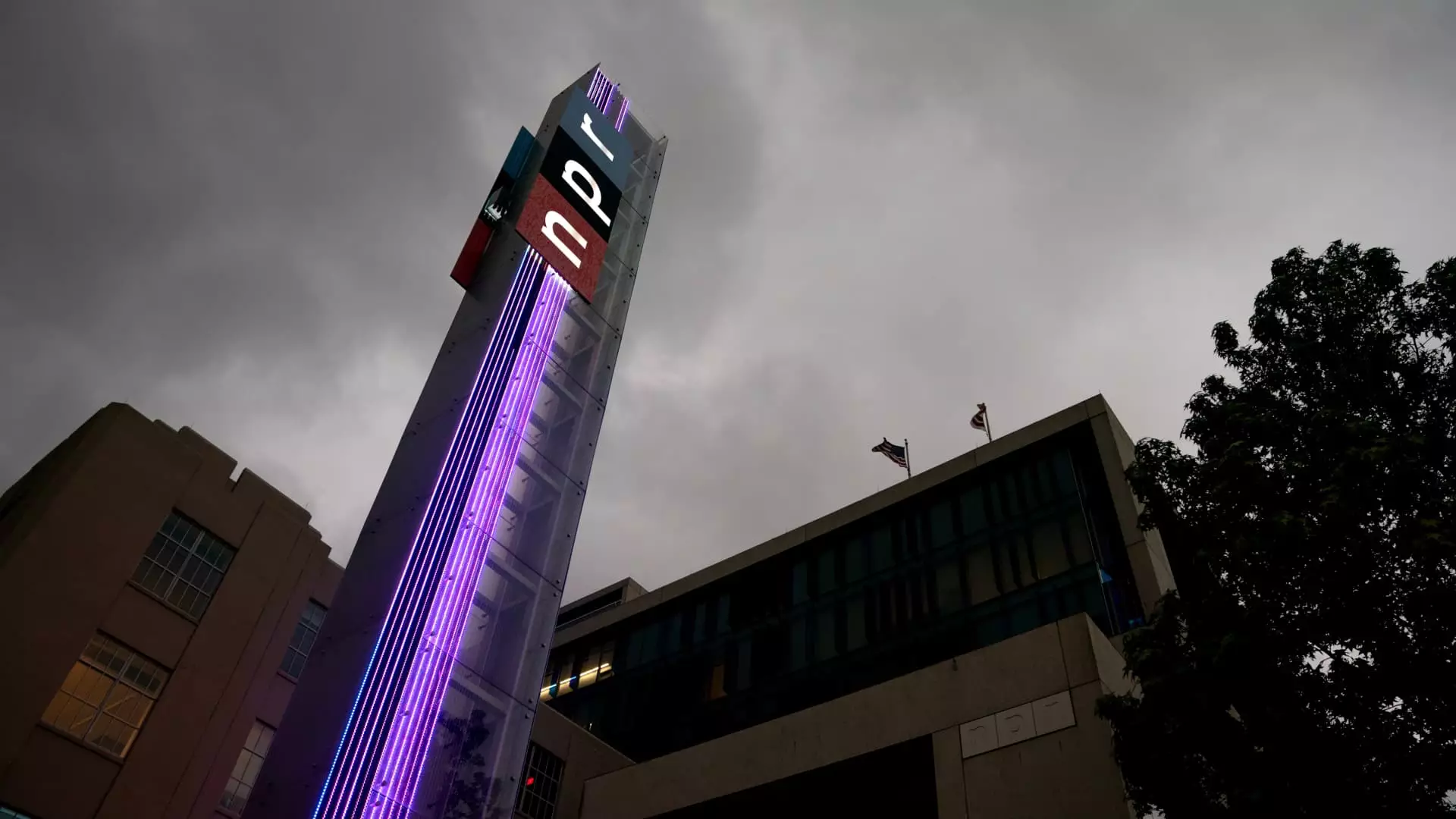In an alarming move that sends shivers down the spine of advocates for free press and civil liberties, National Public Radio (NPR) has filed a lawsuit against President Donald Trump. This legal action is not merely a defense of their organization’s funding; it stands as a pivotal moment in the ongoing battle for press freedom in America. The executive order issued on May 1, 2020, demands a cessation of federal funds to this nonprofit broadcaster, claiming that government support undermines journalistic independence. Such rhetoric not only echoes sentiments fraught with political bias but also tragically targets a cornerstone of democratic discourse—the public media system upon which countless citizens rely for unbiased, quality news.
Constitutional Violations and Expansive Executive Power
NPR’s legal complaint emphasizes that Trump’s order contravenes the First Amendment’s hallowed protections of speech and press. The lawsuit argues that not only does it infringe upon the rights enshrined in the Constitution, but it also constitutes a heavy-handed interference by the executive branch into a matter traditionally left to Congress. Federal funding for public broadcasting—a lifeline for many local stations—is crucial for delivering essential news services, especially in times of crisis. By attempting to manipulate funding as a means of censorship, Trump’s administration sets a dangerous precedent.
The lawsuit asserts that the president’s action is designed to “punish and control” news coverage, targeting media entities that the administration deems “biased.” This is no trivial accusation—in fact, it’s a direct attack on the editorial integrity that public broadcasters have strived to uphold. Any attempt by the government to exert control over the press under the guise of fiscal responsibility must be scrutinized and condemned. The integrity of our media systems depends on their ability to operate free from governmental influence; otherwise, we slip dangerously close to authoritarian censorship.
Funding Challenges and Misconceptions
Critics, including White House spokesman Harrison Fields, argue that federal funding for public broadcasting is not only outdated but serves to promote specific political agendas. However, this claim is not only unfounded but disingenuous. Indeed, NPR’s revenue sources are diverse, with only 1% coming directly from federal funds. The bulk of its financial support comes from listeners, corporate sponsors, and local member stations. Painting public broadcasting as a drain on taxpayer dollars overlooks the myriad of societal benefits it provides—an informed electorate, cultural enrichment, and community engagement, to name a few.
Moreover, the foundation of public broadcasting lies in the understanding that it serves a broader public interest, disconnected from partisan politics. It is a structure aimed at enriching civic engagement rather than eroding it. When the executive branch steps in to challenge this long-held tradition, it does not just threaten NPR—it threatens the very fabric of democratic discourse.
The Role of Public Broadcasting in a Healthy Democracy
Public entities like NPR play an essential role in promoting a well-rounded perspective on complex issues. In an era where media conglomerates emphasize sensationalism over substance, the need for a strong public media system is more critical than ever. NPR’s programming, which includes thoughtful discussions and in-depth investigative reports, serves as a robust counterbalance to the often fragmented narrative of commercial news outlets.
The lawsuit’s emphasis on the potential chilling effect this executive action would induce is particularly poignant. If media organizations must continually measure their reporting against the fears of retaliation or funding cuts, the quality of journalism would inevitably suffer. This culture of fear can only thrive in an environment where dissent is stifled and open dialogue is discouraged.
In standing against Trump’s order, NPR and its member stations are not merely defending their right to exist but are pushing back against a grave threat to free speech and democratic principles. This lawsuit serves as a rallying cry for all who value a diverse and independent media landscape. As citizens, we must recognize the importance of public broadcasting in our society; it must remain a sanctuary for truth, integrity, and the multifaceted narratives of the American experience. If our media is to endure, we must safeguard it against the specter of political manipulation.


Leave a Reply